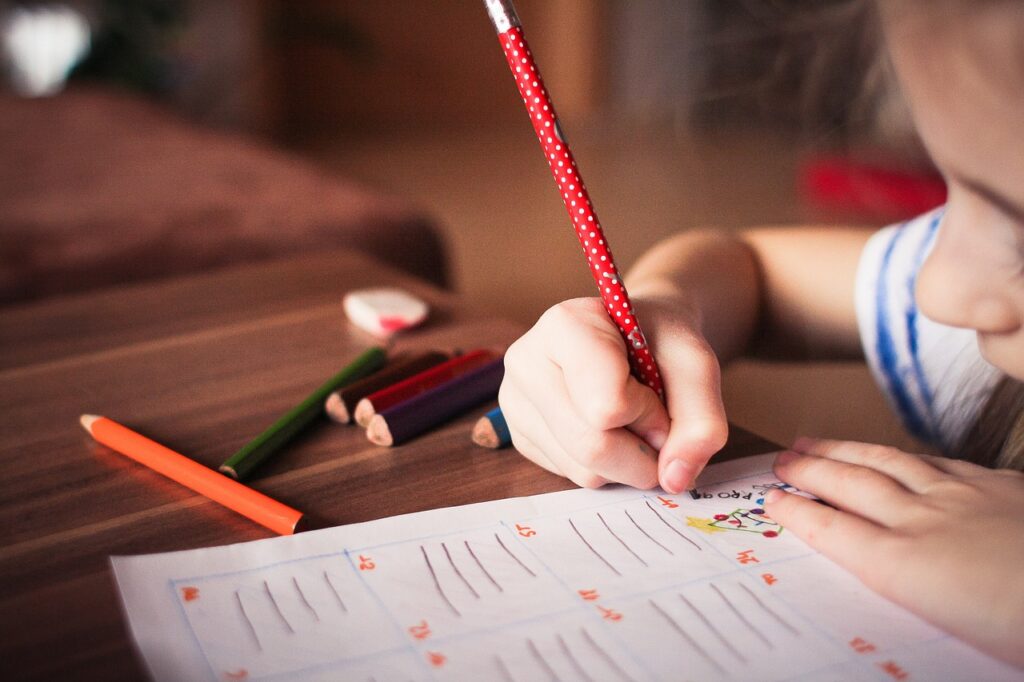14/06/2024
14/06/2024

Moving to Dubai? If you have young children, you must be looking for a school for them, too.
Fortunately, Dubai has a thriving private school system. The Knowledge and Human Development Authority or KHDA, the government agency with oversight and regulatory jurisdiction over private schools in the emirate, reports that Dubai has 220 private schools and 17 curriculum options.
You'll be spoilt for choice if you plan to enrol your children in a British curriculum school in Dubai, as the National Curriculum for England is the most commonly offered private school curriculum in the emirate. Approximately 40% of Dubai's private schools are British schools.
If you’re ready to choose a British school for your children, read on. This article provides an overview of the British curriculum as it is implemented by Dubai schools.

British Curriculum Progression
Most British schools in Dubai closely follow the general progression of the National Curriculum for England. There are six stages: the Early Years Foundation Stage, Key Stages 1-4, and a post-secondary education stage known as College or Sixth Form in the United Kingdom but dubbed Key Stage 5 in Dubai.
The Early Years Foundation Stage (EYFS)
The Early Years Foundation Stage of British schools in Dubai corresponds to the Pre-Kindergarten up to Kindergarten 1 of American curriculum schools.
- Foundation Stage 1 (FS1) or Nursery: In Foundation Stage 1, children three to four years old are introduced to basic learning through play. This stage focuses on developing social, emotional, basic literacy, and numeracy skills.
- Foundation Stage 2 (FS2) or Reception: Foundation Stage 2 is for children four to five years old. It builds upon the foundations laid in nursery, enforcing more structure while maintaining a play-based approach. FS2 teachers complete an Early Years Foundation Stage Profile for every student at the end of it.
Key Stage 1
Key Stage 1 corresponds to Kindergarten 2 and Grade 1 in American schools.
- Year 1: Year 1 is for children five to six years old. The curriculum core courses and compulsory subjects start at this stage. Every year of education builds on what was learned in the previous year. Year 1 students undergo a statutory phonics screening test.
- Year 2: Year 2 is for children six to seven years old. Year 2 students undergo national curriculum assessments in maths and English (particularly in reading, grammar, punctuation, and spelling) and internal assessments (i.e., teacher assessments) on science, writing, speaking, and listening.
Key Stage 2
Key Stage 2 is for children seven to 11 years old and corresponds to Grades 2-5 in American schools. The curriculum education deepens at this stage. At Year 6, a foreign language subject may be offered as an option to students in preparation for the subsequent stage.
- Year 3: This is for children seven to eight years old.
- Year 4: This is for children eight to nine years old.
- Year 5: This is for children nine to 10 years old.
- Year 6: This is for children 10 to 11 years old. An option to start studying a modern foreign language (e.g., French, Spanish, German, Italian) may be available during Year 6. Students also undergo national curriculum and internal assessments in English and maths. Teacher assessments continue for science.
Key Stage 3
Key Stage 3 encompasses Years 7 to 9 and is equivalent to Grades 6 to 8 in the American school curriculum. This is the beginning of secondary school. At this stage, children deepen their knowledge of core subjects even more. One or more modern foreign languages (e.g., French, Spanish, German, Italian) are now part of the curriculum.
- Year 7: This is for children 11 to 12 years old.
- Year 8: This is for children 12 to 13 years old.
- Year 9: This is for children 13 to 14 years old. At Year 9, students may pick their General Certificate of Secondary Education (GCSE) subjects.
Key Stage 4
Key Stage 4 encompasses Years 10 and 11, the last two years of secondary school, and corresponds to Grades 9 (Freshman year) and Grade 10 (Sophomore year) of the U.S. curriculum. Students continue to study curriculum core subjects plus optional subjects.
Key Stage 4 students usually take nine GCSE subjects, but students may study fewer or more than that, depending on their school and abilities. Students take their GCSE exams and earn their GCSE qualifications at this stage.
- Year 10: Students 14 to 15 years old may take GCSE or international GCSE (iGCSE) exams.
- Year 11: Students 15 to 16 years old sit for their GCSE/iGCSE and other national exams.
Key Stage 5 (Post-16)
Key Stage 5 corresponds to Sixth Form in the UK and Grades 11 and 12 (Junior and Senior years) in American schools. This is when students study Advanced Subsidiary (AS) and Advanced (A) level subjects, sit for national assessments on these subjects and earn their AS and A-Level qualifications. This stage is highly specialised, with students usually focusing on three to five subjects relevant to their future university courses or career paths.
- Year 12: Students 16-17 years old may sit for national AS level exams. Some schools conduct internal exams instead of national assessments.
- Year 13: Students 17-18 years old sit for national A-Level exams, especially if they wish to pursue higher education in university. Some may take the Business and Technology Education Council (BTEC) exams.
Subjects
The UK curriculum core courses are:
• English
• Mathematics
• Science
British schools in Dubai also have these additional core courses.
• Humanities
• Digital learning
• Enterprise education
• Design and technology (information and communication technology or ICT)
• Arts (drama/music/fine arts)
• Physical education
• Modern foreign languages (French, Spanish, German, Italian, etc.)
The UAE Ministry of Education (MoE) also requires all schools to cover the following compulsory courses:
• Arabic: All UAE students study Arabic as a first language for twelve years (for Native Arabs) or as an additional language for nine years (for students of other nationalities). Arabic language instruction must begin at six years old; this is Year 2 in British schools. Some British schools start Arabic language classes much earlier (FS1, FS2 or Year 1).
• Islamic Studies: All Muslim students in the UAE, whether Arab or not, must take Islamic Studies subjects for 12 years. Islamic Studies instruction must start when children turn six (Year 2), but some British schools teach the subject much earlier (FS1, FS2 or Year 1).
• Personal, Social, Health, and Economic (PSHE) Education: Non-Muslims must take PSHE in lieu of Islamic Studies.
• UAE Social Studies: Nine years of UAE Social Studies are compulsory. It may be offered from Year 2 to Year 10 or from Year 1 to Year 9.
British Education in Dubai
Dubai has hundreds of private schools, and a significant portion of them are British schools. These schools follow the National Curriculum for England but modified for the local context and to accommodate the UAE Ministry of Education's compulsory courses.


